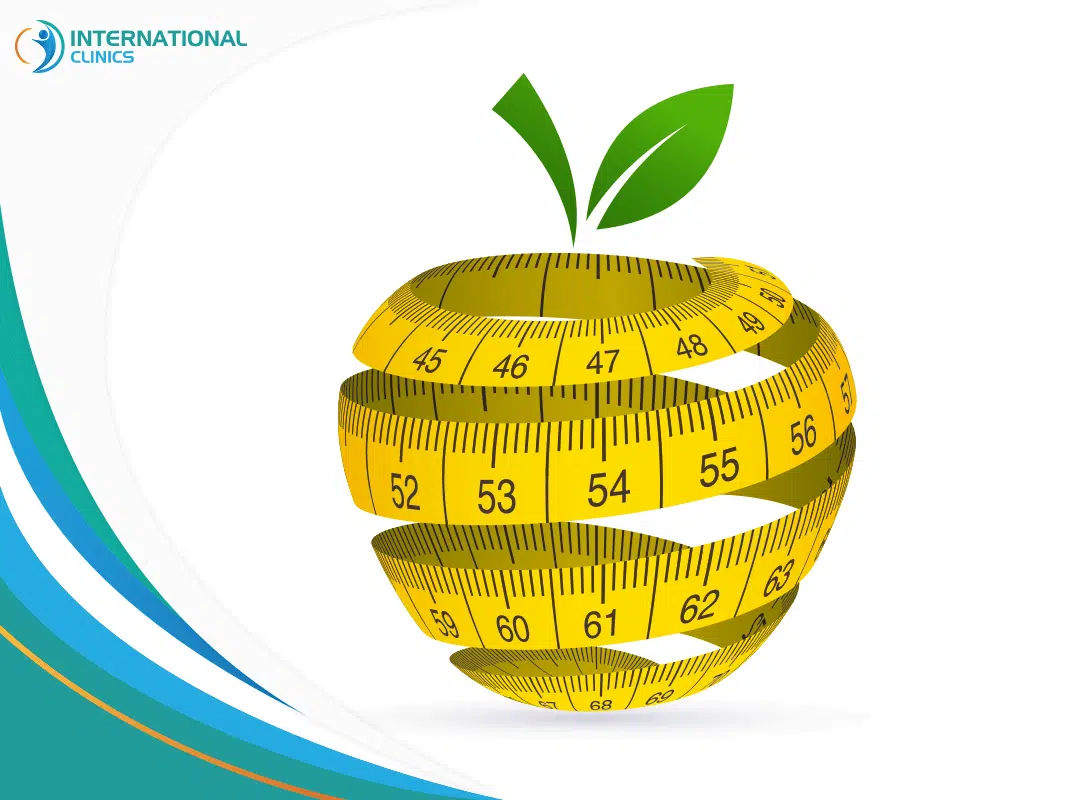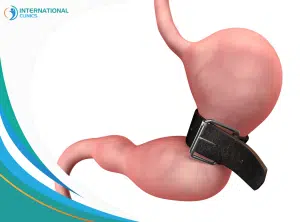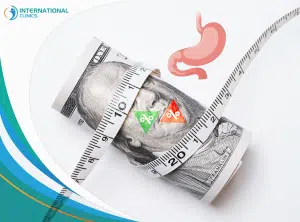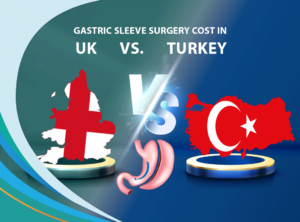We all know that losing weight and maintaining it can be quite a challenge. But what if I told you there’s a way to jumpstart your weight loss journey and improve your overall health?
Gastric sleeve surgery or sleeve gastrectomy, is a surgical procedure that reduces the size of your stomach, helping you feel fuller with less food. It’s an effective tool for individuals struggling with obesity, providing them with an opportunity to achieve long-term weight loss and regain control of their lives.
But here’s the thing: gastric sleeve in Turkey is just the beginning. To ensure successful outcomes and maintain your weight loss over time, adopting a long-term diet plan is essential. Your dietary choices will play a crucial role in supporting your weight loss goals and improving your overall well-being.
In this blog, we’ll delve deeper into each stage of the post-surgery diet progression, exploring the dos and don’ts along the way. We’ll equip you with practical tips on meal planning, portion control, and making mindful food choices that will support your long-term success. Get ready to embrace this exciting chapter in your life!

The Importance of Diet After Gastric Sleeve Surgery
Your dietary choices play a significant role in how well your body digests food, absorbs nutrients, and maintains overall health. By focusing on a balanced diet, you can prevent nutritional deficiencies that may arise post-surgery and ensure long-term success with weight management.
Following gastric sleeve surgery in Turkey, your stomach’s size is significantly reduced, so you must make every calorie count. The use of nutrient-dense foods gives you the energy you need while promoting healing and supporting overall well-being.
Developing healthy eating habits is essential for long-term success with weight management after gastric sleeve surgery. It’s not just about the quantity of food you consume but also the quality. By making mindful choices and prioritizing nutrition, you can establish a positive relationship with food that supports your weight loss journey.
A nutritious diet not only aids in weight loss but also boosts energy levels and enhances overall well-being after gastric sleeve surgery. When you fuel your body with wholesome foods, you provide it with the necessary nutrients to function optimally. The dietary consultations are usually part of the overall gastric sleeve cost in Turkey.
A medical team at the best international standards
The Immediate Post-Surgery Diet
The immediate post-surgery period involves a liquid-only phase, which serves as a critical step in the recovery process. During this initial phase, patients are required to consume only liquids. This is necessary to allow the stomach to heal properly without putting undue stress on the surgical site. Liquids are easier for the body to digest and absorb, allowing for a smoother transition from surgery to regular food intake.
Consuming adequate protein is vital during this early post-surgery period since proteins play a key role in wound healing and tissue regeneration. They also help preserve lean muscle mass while promoting fat loss. Patients may experience difficulties adjusting to their new eating habits during this time, both physically and emotionally. It is normal to feel hunger pangs or cravings for solid foods initially, but it’s important to stay committed to the prescribed diet plan.
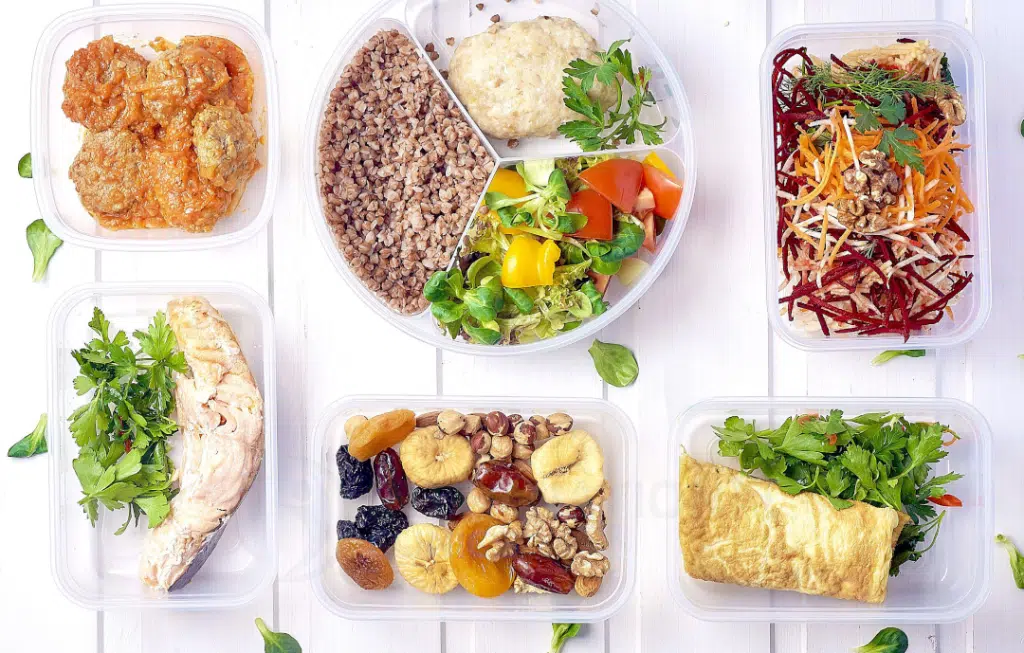
Week-by-Week Diet Progression After Surgery
The diet progression typically consists of several stages that gradually introduce different textures and types of foods. Each stage serves a specific purpose in allowing your body to adjust to the changes brought about by the surgery.
Dietary Recommendations at Each Stage
Stage 1: Clear Liquids
- In the initial days following surgery, you will be limited to clear liquids such as water, broth, sugar-free gelatin, and herbal tea.
- These fluids and sugar-free drinks help maintain hydration levels without adding unnecessary calories or sugars that could hinder weight loss progress.
- It is important to sip slowly and avoid using straws or drinking carbonated beverages during this stage.
Stage 2: Full Liquids
- As you progress through the second week, you can gradually introduce full liquids into your diet.
- This includes protein shakes, low-fat milk, yogurt, cream soups (strained), and vegetable juices.
- Be cautious with high-sugar or high-fat liquids as they may cause discomfort or hinder weight loss.
Stage 3: Pureed Foods
- By week three or four post-surgery, pureed foods become suitable for consumption.
- Examples include pureed lean meats like chicken or fish, soft-cooked vegetables, cottage cheese, hummus, and mashed fruits.
- Ensure that the consistency is smooth without any solid chunks.
Stage 4: Soft Solids
- Around six weeks after surgery, soft solids can be introduced into your diet.
- This includes well-cooked vegetables (without skins), ground lean meats (like turkey or beef), scrambled eggs, tofu, and cooked grains like quinoa or oatmeal.
- Chew your food thoroughly to aid digestion and prevent discomfort.
Stage 5: Regular Diet
- After three months, you can gradually transition to a regular diet.
- Focus on consuming small, balanced meals that include lean proteins, whole grains, fruits, and vegetables.
- Avoid high-calorie foods and beverages that provide little nutritional value.

Restrictions and Modifications
While progressing through the stages of your post-surgery diet, it is important to be mindful of certain restrictions and modifications:
- Limit high-fat or high-sugar foods as they can cause digestive issues or hinder weight loss progress.
- Avoid carbonated beverages as they can lead to bloating and discomfort.
- Steer clear of tough or fibrous meats that may be difficult to digest.
- Stay away from spicy or heavily seasoned foods that may irritate your stomach lining.
Do you have any questions? You can reach us by Whatsapp right now!
The Transition to Solid Foods
Transitioning from a liquid diet to solid foods is an important milestone in the long-term diet after obesity surgery in Turkey.
This gradual process allows your body to adjust and heal while ensuring that you are receiving the necessary nutrients for optimal recovery.
This phase typically begins around four to six weeks after the surgery, but the exact timing may vary depending on the individual’s progress and the advice of their healthcare team.
It is crucial to start with foods that are easy to digest and gentle on your stomach. Pureed foods can be an excellent option during this stage as they provide a smooth texture that is easier for your body to handle.
Patients should focus on consuming nutrient-dense foods that provide essential vitamins, minerals, and proteins. The emphasis should be on whole, unprocessed foods, such as lean meats, fish, fruits, vegetables, and whole grains.
Soft and ripe options for fruits are often recommended to ease digestion. Patients should avoid high-calorie, sugary, fatty, and greasy foods, as well as foods with excessive fiber or tough textures that might irritate the stomach.
Managing discomfort or digestive issues during this transitional period is vital for a successful recovery. It’s common to experience some bloating or indigestion as your body adapts to solid foods again.
As you embark on this exciting phase of your recovery, remember that it’s not just about what you eat but also how you eat. With a little patience and perseverance, you’ll soon embrace a healthy lifestyle supporting your long-term goals after gastric sleeve surgery.
Tips for Long-Term Dietary Adherence After Gastric Sleeve Surgery
Building a positive relationship with food is essential for long-term success after gastric sleeve surgery. This involves reframing the way we think about food by focusing on its nutritional value rather than using it solely for comfort or emotional reasons.
Educate yourself on different food groups, their nutritional value, and how they can benefit your body. By embracing a healthy lifestyle centered around nourishing the body, you can develop sustainable habits that will benefit them in the long run.
1- Meal Planning
By preparing your meals in advance, you can ensure that you have nutritious options readily available, making it easier to avoid unhealthy choices when hunger strikes.
2- Grocery Shopping
When grocery shopping, stick to the perimeter of the store where fresh produce, lean proteins, and whole grains are typically located. Avoid the aisles filled with processed snacks and sugary beverages that can derail your progress.
3- Stick to Your List
Before heading to the store, list the items you need for your planned meals. Stick to this list as much as possible to avoid impulse purchases that may not align with your dietary goals.
4- Shop the Perimeter
The perimeter of the grocery store is typically where fresh produce, lean meats, dairy products, and whole grains are located. Focus on filling your cart with these nutritious options while minimizing processed foods found in the center aisles.
5- Prep Ingredients in Advance
Spend some time prepping ingredients ahead of time to streamline the cooking process during busy weekdays. Chop vegetables, marinate proteins, or cook grains in advance to make assembling meals quick and easy.
6- Batch Cooking
Make large batches of soups, stews, or casseroles that can be portioned out and frozen for later use. This way, you’ll always have a healthy meal option available when you’re short on time or energy.
7- Variety is Key
Keep your meals interesting by incorporating a variety of flavors and textures. Experiment with different spices, herbs, and cooking methods to make your meals enjoyable.
8- Create a Weekly Meal Plan
Sit down once a week and plan out your meals for the upcoming days. This will save you time and effort during busy weekdays when opting for convenience foods is tempting. Consider your dietary guidelines and ensure that each meal includes a balance of lean protein, whole grains, fruits, and vegetables.
9- Portion Control
One of the key aspects of maintaining a healthy diet after gastric sleeve surgery is portion control. Listen to your body’s hunger and fullness cues. Eating smaller, more frequent meals throughout the day can help prevent overeating and promote better digestion.
10- Hydration
Drink plenty of water throughout the day to stay hydrated. staying hydrated aids digestion and prevents dehydration-related complications that may hinder weight loss progress.
11- Chew Thoroughly
Take small bites and chew each mouthful thoroughly before swallowing. This allows your brain to register feelings of fullness more accurately and prevents overeating.
12- Eat Mindfully
Practice mindful eating techniques such as chewing slowly and savoring the flavors of each bite. Mindful eating practices can help you develop a stronger connection with your body’s hunger and fullness signals.
13- Track Your Intake
Keep a food diary or use a mobile app to track your daily intake. This helps monitor portion sizes and nutrient intake, and identify any triggers for discomfort or poor dietary choices.
14- Eliminate Distractions
Avoid distractions like watching TV or using electronic devices while eating. Instead, focus on the act of eating and fully enjoy your mealtime experience.
15- Avoiding Trigger Foods
Identify foods that may trigger unhealthy eating behaviors or discomfort after surgery, such as high-sugar or high-fat options, carbonated beverages, or spicy foods. By recording what you eat, you can identify any trigger foods that may cause discomfort or lead to unhealthy eating habits. This awareness enables you to make informed decisions about which foods to include or avoid in your diet.
16- Listen to Your Body
Pay attention to your body’s hunger and fullness cues. Eat until you feel satisfied, not overly full. Remember that it takes time for your brain to register feelings of satiety, so pause between bites and assess how hungry you truly are.
We’re Listening

Building a Healthy Lifestyle After Gastric Sleeve Surgery
Adopting a balanced approach to nutrition is key. Rather than relying solely on restrictions, it is important to focus on incorporating a variety of nutrient-rich foods into your diet. This means including lean proteins, whole grains, fruits, vegetables, and healthy fats in your meals. Avoiding extremes or overly restrictive diets can create sustainable habits that promote long-term success.
Here are some ways a healthy diet can positively impact your energy levels:
Stable Blood Sugar Levels
- Consuming balanced meals consisting of protein, complex carbohydrates, and healthy fats helps regulate blood sugar levels throughout the day. This prevents energy crashes commonly associated with consuming sugary or processed foods.
Improved Digestion
- A diet rich in fiber from fruits, vegetables, and whole grains promotes healthy digestion by preventing constipation and maintaining regular bowel movements.
Enhanced Mood:
- Nutrient-dense foods, such as those rich in omega-3 fatty acids found in fish and walnuts, have been linked to improved mood and mental well-being.
Increased Vitality
- Providing your body with the necessary vitamins and minerals supports optimal organ function, leading to increased vitality and overall health.
Protein
- Incorporate lean sources of protein like chicken breast, fish, tofu, or legumes into each meal. Protein helps build and repair tissues while keeping you feeling full for longer.
Fruits and Vegetables
- Fruits and vegetables are rich in vitamins, minerals, antioxidants, and fiber. Fruits and vegetables offer essential vitamins and minerals necessary for overall health while keeping calorie intake in check.
Whole Grains
- Choose whole grain options like brown rice or quinoa instead of refined grains to increase fiber intake and promote healthy digestion. Whole grains provide sustained energy levels and prevent blood sugar spikes that could lead to cravings or overeating.
Healthy Fats
- Include sources of healthy fats such as avocados, nuts, seeds, and olive oil in moderation. These fats provide satiety while supporting heart health.
Now get your free medical consultation
The Role of Physical Activity
In addition to making dietary changes, regular physical activity plays an integral role in maintaining weight loss after gastric sleeve surgery. Engaging in regular exercise helps burn calories, build muscle mass, and increase metabolism. It also contributes to overall well-being by improving cardiovascular health and boosting mood.
Finding activities that you enjoy can make exercise more enjoyable and increase motivation. Whether it’s going for walks in nature, dancing to your favorite music at home or joining fitness classes with friends, finding ways to incorporate movement into your daily routine will help support your long-term weight loss goals.
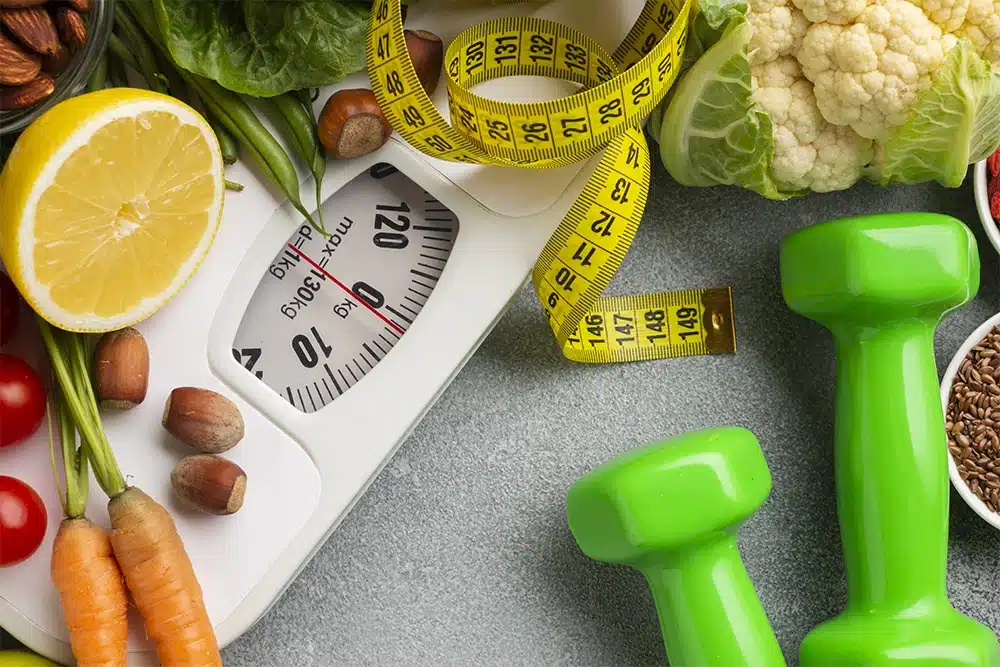
Managing Potential Weight Regain and Staying Motivated
Weight regain can happen even after successful gastric sleeve surgery if proper measures are not taken. However, there are strategies you can implement to manage potential weight regain and stay motivated on your journey. Here are a few tips:
| Regularly monitor your weight | Keep track of your weight to identify any changes early on. This can help you make adjustments to your diet and exercise routine if necessary. |
| Stay connected with support groups | Surrounding yourself with individuals who have undergone similar procedures can provide valuable support and motivation. Share experiences, challenges, and successes to stay motivated throughout the process. |
| Seek professional guidance | Consult with a registered dietitian or nutritionist who specializes in post-surgery dietary needs. They can provide personalized advice tailored to your situation and help you navigate any obstacles. |
| Set achievable goals | Break down your long-term goals into smaller, realistic milestones. Celebrate each achievement along the way, reinforcing positive behaviors and maintaining motivation. |
| Stress Management | Stress management techniques such as deep breathing exercises, meditation, or engaging in hobbies can be beneficial. It’s important to find what works best for each individual and incorporate these practices into daily life. |
| Self-Care | Taking care of oneself physically, mentally, and emotionally is crucial for overall well-being. Engaging in activities that promote relaxation and reduce stress can help prevent emotional eating or reverting to unhealthy habits. |
Secure your appointment at International Clinics by booking now
Improved Overall Health
While weight loss is often the primary goal after gastric sleeve surgery, there are numerous additional benefits associated with adhering to a long-term diet plan. Improved overall health is one such advantage that extends beyond just shedding pounds.
Maintaining a healthy weight reduces the risk of developing chronic conditions such as diabetes, high blood pressure, heart disease, and certain types of cancer. It also improves sleep quality, boosts energy levels, enhances mood, and increases self-confidence.
By focusing on long-term dietary changes and embracing a healthy lifestyle, individuals can experience these positive transformations in their physical and mental well-being.
Conclusion
Throughout this journey, we have discussed the importance of diet after gastric sleeve surgery, starting from the immediate post-surgery diet to the transition to solid foods. We have also explored healthy eating habits for long-term success and provided a sustainable diet plan specifically designed for gastric sleeve patients.
Remember that everyone’s journey is unique, so find what works best for you and embrace it wholeheartedly. By adhering to the week-by-week diet progression guidelines, you can gradually introduce new foods into your diet while ensuring proper nutrition intake.
Maintaining weight loss through long-term dietary changes requires dedication and commitment. It is important to remember that this process is not just about losing weight but also about adopting a healthier lifestyle overall. By making conscious choices in what you eat and how you nourish your body, you can achieve lasting success.

FAQs
After gastric sleeve surgery, your healthcare team will guide you through a gradual progression from clear liquids to pureed foods and eventually solid foods. Typically, this transition begins around four to six weeks post-surgery, but it may vary depending on individual circumstances.
While portion control is important for weight management after gastric sleeve surgery, it is equally crucial to focus on consuming nutrient-dense foods that provide essential vitamins and minerals. Opting for whole grains, lean proteins, fruits, and vegetables will support your overall health and help you achieve sustainable weight loss.
Regular follow-up appointments with your healthcare team are essential for monitoring your progress and addressing any concerns or challenges you may face along the way. The frequency of these appointments may vary but typically includes visits at one month, three months, six months, one year, and annually thereafter.
While diet plays a significant role in weight loss after gastric sleeve surgery, incorporating regular physical activity into your routine can enhance your results and improve overall health. Consult with your healthcare team about appropriate exercises based on your specific needs and capabilities.
Due to the reduced stomach size following gastric sleeve surgery, it is common for individuals to require nutritional supplements to ensure adequate intake of essential vitamins and minerals. Your healthcare team will guide you on the specific supplements recommended for you based on regular blood tests and assessments.
Read more: Obesity surgery cost in Turkey
